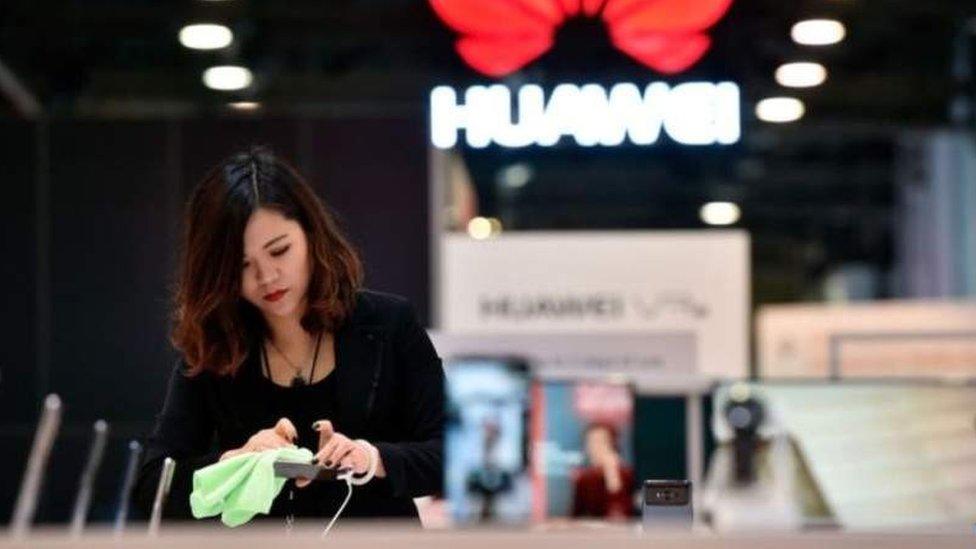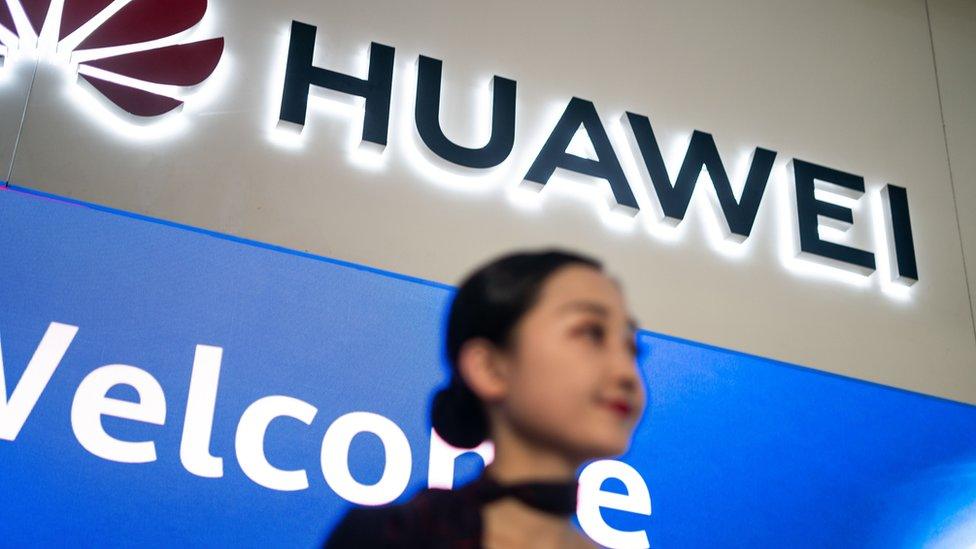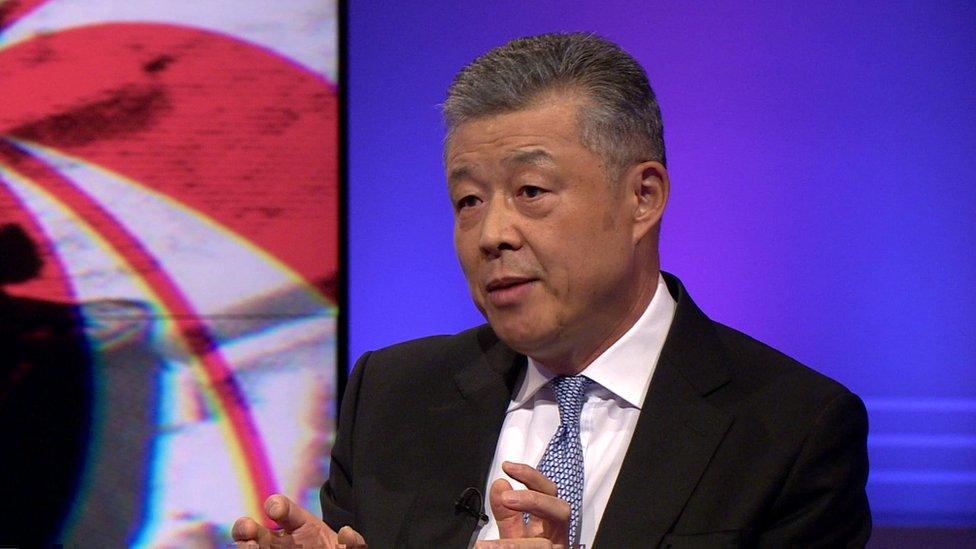Huawei: Government decision on 5G rollout delayed
- Published

A decision on whether controversial Chinese firm Huawei should be excluded from the rollout of 5G mobile phone networks in the UK has been postponed.
Culture secretary Jeremy Wright said the government is "not yet in a position" to decide what involvement Huawei should have in the 5G network.
Mr Wright said the implication of the recent US ban on its companies from dealing with Huawei was not clear.
Until it was, he said the government would be "wrong" to make a decision.
"We will do so as soon as possible," he told the House of Commons.
The US banned companies from selling components and technology to Huawei and 68 related companies on 15 May, citing national security concerns.
It later issued a temporary licence that enabled some companies to continue supporting existing Huawei networks and devices.
Mr Wright said the US decision "could have a potential impact on the future availability and reliability of Huawei's products, together with other market impacts, and so are relevant considerations in determining Huawei's involvement in the network".
Last week, MPs said the government needed to make a decision on Huawei as "a matter of urgency", warning continued delays were damaging international relations.
Huawei has repeatedly denied claims the use of its products presents security risks, and has said it is independent from the Chinese government.
Huawei, vice president Victor Zhang said it was confident "that we can continue to work with network operators to rollout 5G across the UK."
"After 18 years of operating in the UK, we remain committed to supporting BT, EE, Vodafone and other partners build secure, reliable networks."
"The evidence shows excluding Huawei would cost the UK economy £7bn and result in more expensive 5G networks, raising prices for anyone with a mobile device," he added.


So yet again the key question about the UK's 5G future has been delayed.
The government says it is still not clear what the Trump administration's blacklisting of Huawei really means. If there is going to be an all-out ban on US firms working with the Chinese company then that could make its products - which use some American components - unreliable in the longer term.
Meanwhile UK mobile operators are getting on with the rollout of 5G - all of them using Huawei equipment.
In doing so they are taking a risk because a government ban would mean they had to rip out equipment and start again at great cost.
So the operators are increasingly impatient for some certainty - although it looks as though that could be some time coming unless the new Prime Minister decides that it is right at the top of his in-tray.

Britain's National Security Council, chaired by outgoing Prime Minister Theresa May, met to discuss Huawei in April and a decision was made to block the firm from all critical parts of the 5G network over security concerns, but still allow it restricted access to less sensitive parts.
The final decision on Huawei was then supposed to have been made public in the review of the telecoms supply chain led by the Department for Digital, Culture, Media and Sport, which was published on Monday.
The decision on 5G equipment vendors will now be made by the next prime minister.
Shadow secretary of state for digital, culture, media and sport Tom Watson said the government's handling of Huawei's involvement in the future of the UK's 5G network had been defined by "confusion".
"Whether the government needs to ban Huawei for security reasons or not, the government has a rollout target to meet, 5G for the majority of the country by 2027. So we need clarity one way or another and government should have a plan B for meeting this target if necessary," he added.
Mark Newman, analyst at tech research firm ConnectivityX, said so far only Vodafone and EE had switched on their 5G networks and both had used Huawei to supply their radio access networks.
"Huawei is the world's biggest supplier of telecoms equipment and leads the race in the development of 5G networks. 5G services could be impacted with the continued uncertainty over the future of Huawei in the UK," he said.
Last month, China's ambassador to the UK warned that excluding Huawei from Britain's 5G network "sends a very bad signal".
Speaking to BBC's Newsnight, Liu Xiaoming said Chinese businesses planning to invest in Britain may be put off dealing with the UK if Huawei's equipment is not used for the network.
- Published29 May 2019

- Published13 June 2019
